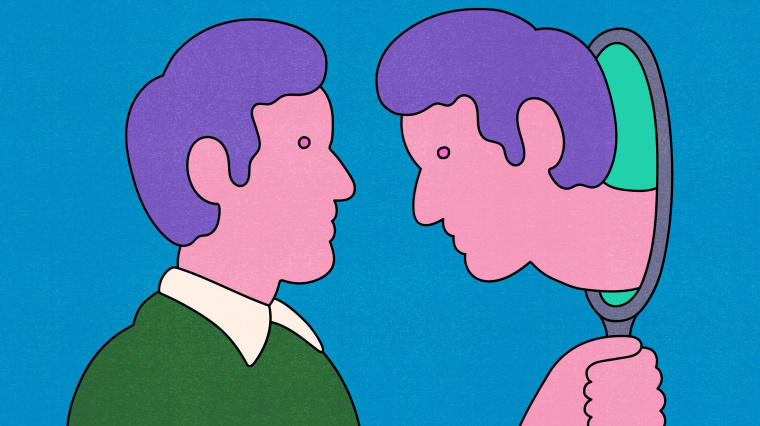My Principle #2: Self-Honesty (Part 2)
Foreword
Thank you to everyone who supported my last post: My Principle #2: Self-Honesty (Part 1)
Appreciate the support and insightful comments! It has been a while since I got the time to just down, relax and write a blog...
In this article, I will continue my high school story and discuss the conceptualisation of the Trifecta: Self-awareness, Self-evaluation and Self-improvement. If this is your first time reading my blogs, I would suggest you read my previous blogs to get some context. Without further a due, let’s get into it!
The Journey Towards a Better Self
When I was in high school, I had a life changing moment.
“Who you are today does not define who you are tomorrow. So, what do you want to be tomorrow? That is the question.” – My Mummy
“I want to be better Mummy.” – Me
“Then go be better.” – My Mummy
This is where I started my journey to truly “conquer myself”.
1/ Self-Awareness

Clearly, I was extremely self-conscious of myself, and I would argue that many of us also often feel extremely self-conscious of ourselves. However, this is completely fine! In fact, it would be weird if we weren’t somewhat self-conscious, because it would mean we have no common sense or internal judgement. Thus, I learnt that I should not fight this feeling but embrace it – recognise that I am not good enough and confront it. From my experience, I realised that people naturally hate to admit of their own shortcomings, and this occurs for a various range of reasons. I cannot speak for others but at least for me, I am a prideful person, and everytime I feel inadequate, I felt like my pride was hurt. This is where I had an epiphany that such pride is completely useless, counter-productive and prevented me from being better. With such a realisation, it became natural to let go of this false sense of pride.
Self-awareness is the first step to self-honesty.
2/ Self-Evaluation

Okay, so I need to be better. But how?
To understand how to be better, you must understand why you are not good enough – just yet. This is where people would naturally have different approaches to evaluating and analysing yourself. Personally, I just stepped out of my comfort zone and ask my peers for advice. In the context of school work, I would often ask peers who I admired on how to study better, what methods do you recommend, what books do you suggest and so on. Through these conversations, I realised why I wasn’t performing as well, for example, I had no structure in studying and would benefit from a consistent routine.
I believe that the human brain operates similar to machine learning. We are constantly process information and developing new systems to understand, evaluate and act on the information. As such, you need to have more input in order develop better evaluation “algorithms” in your mind. Thus, asking for more advice is absolutely crucial in rapidly developing you own repertoire of concepts and principles. In the beginning, you may find that you want to take in every piece of advice given to you, but that is because your “algorithm” is not yet advanced enough to filter advice that matters to you the most. However, once you get over this phase, your own “algorithm” will be more and more advanced, and in turn, you will be able to more effectively evaluate yourself. This is a process, not a destination.
Self-evaluation is the second step to self-honesty.
3/ Self-Improvement
The final step of actually improving yourself becomes relatively easy once you know “why” you are not good enough. At this point, you need to focus on pinpointing the root cause and develop an action plan to improve. Again, I am all about developing your own method, so we should all have our own goal setting and improvement plan. There is simply no point in dwelling on why you are not good enough if you are not willing to do something about it.
It is important to note that improvement occurs over time and not instantly, and thus you should not expect to get results straight away. If you consistently improve every single day, the compound effect will be significant in the long run. Thus, start by aiming to be a better version of yourself every day, whether it be learning a new concept, developing a new relationship or reinforcing your existing knowledge base. The little stuff counts – a lot.
Self-improvement is the final step towards self-honesty.
Final thoughts
The Trifecta of self-awareness, self-evaluation and self-improvement forms the basis for self-honesty, and collectively, they provide you with the tools and systems to “conquer yourself”. You must know what you are not good enough at, why you are not good enough, and how are you going to get better. This is what self-honesty is all about – be a better version of yourself. Equally, we may use the same system in understanding our strengths rather than just short comings, as it is important to know your own qualities, determine why they are as such, and work to maintain as well as improve on them. It is a balancing act.
Guided by the principle of self-honesty, you establish a system of identification, evaluation and action to continuously improve yourself. As I go on a journey towards a better self, I came to an epiphany: that there is no endgame to “conquering yourself”, however, what you can do is to be a better version of yourself every single day. The better you are, the more you will conquer.
“He who conquers, conquers himself” – Publilius Syrus
References
[1] EDC Reminder Coins, 'Vincit Qui Se Vincit - He Conquers Who Conquers Himself' (online, 2022) <https://www.edcremindercoins.com/post/vincit-qui-se-vincit>.




































